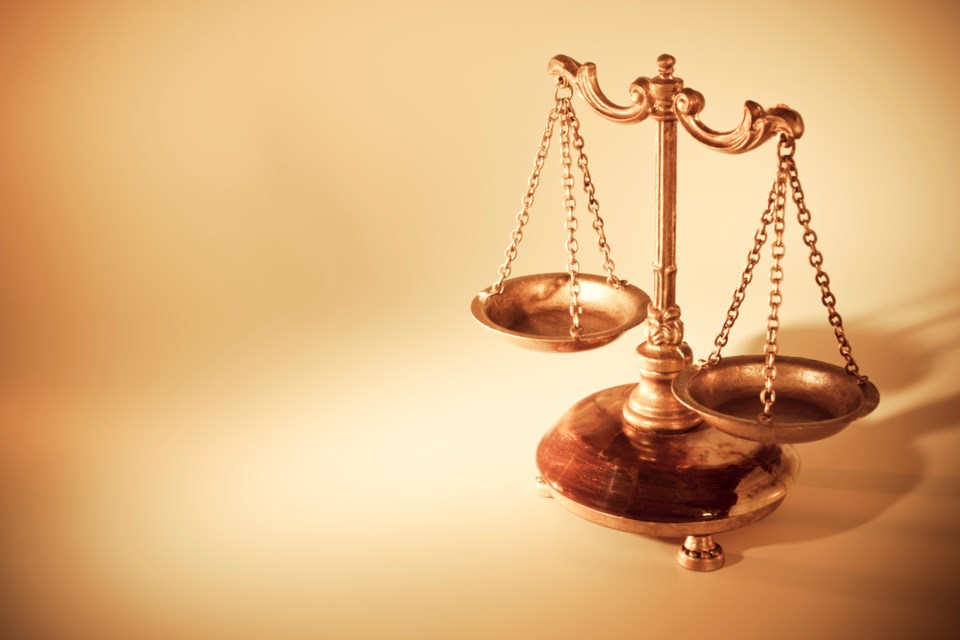Emotions ran high Monday when a trial began in Prince George for a prominent B.C. Indigenous leader accused of repeatedly raping a then-teenage girl nearly 50 years ago.
Edward John faces four counts of rape - the term then used for what is now known as sexual assault - alleged to have occurred between March 1 and Sept. 15, 1974 in Prince George, Cluculz Lake and Fraser Lake.
The complainant, a woman now in her 60s whose name is shielded by a court-ordered publication ban, testified she had was nearing completion of her Grade 8 year when she secured a part-time job through the Doh Day De Claa Friendship Centre that turned into a full-time position once school was out for the summer break.
She alleged that John, who was the organization's executive director, forced sex on her in his office on two separate occasions and then twice in one day while they were on a trip to a youth conference in a community to the west.
She testified that John had turned off onto a road into Cluculz Lake, stopped at the site of a "dilapidated shack" and then forced her to have sex with him in the passenger seat of his Volkswagen Beetle.
He did the same thing again later in the day after they drove out to the site of the old Lejac Residential School, the court was told. He ordered her to go out for a swim with him in nearby Fraser Lake without clothes on and then had sex with her in a change room near the shore.
Instead of continuing on to the youth conference, they returned to Prince George, she alleged.
By then she had turned 14 years old, the court was told.
Under cross examination by John's lawyer, Tony Paisana, she agreed she did not resist John's advances but only because he was her boss and was worried she would be fired.
"I was a child and he raped me and I couldn't do anything and I couldn't say anything and you ask me these questions like it was my fault," she shot back near the end of the day. "I was a child, he was the adult."
The woman, who is the Crown's sole witness, said she went to RCMP with her allegations in 2017 when the #MeToo movement was "all over the news."
She said her husband asked her if she thought the women who had gone public with their allegations of being sexually assaulted were lying.
"I really shouted at him. I said 'no.' I said women don't lie about those things, victims don't lie about that," she testified.
Later noting she was in counselling at the time, she said she couldn't understand why she was so angry at the time but within a week it all came back.
"I remembered, it just came to me," she told the court.
It was not the first time she experience the memories and tried to take action, the court heard.
In the early 1990s, when she and her first husband were going through a stressful time, she testified she phoned the RCMP to make a complaint but backed away when police allegedly told her that because of his high stature he would be difficult to prosecute unless other victims filed similar complaints.
"To me (it was an instance of) people who should look after us not doing what we think they should be doing, so I just gave up, I didn't pursue it," she said when she provided testimony led by the Crown prosecutor, Michael Klein.
When Paisana challenged the woman under cross examination, suggesting the RCMP said no such thing, she stuck to her story.
The woman also maintained John sported short hair at the time, much like he does now. In response, Paisana presented her with photos from identification cards and from a newspaper story from the time showing John with shoulder-length hair.
Paisana raised questions over her account of the alleged incident at Cluculz Lake, noting that she told her counsellor it occurred in the shack and then told police it occurred in car's back seat.
The woman agreed she made the contradictory statements but added she was trying to sort out and make sense of what happened at a "very stressful time."
She admitted to having struggles with drugs and alcohol but maintained they only affected her memory of minor events.
But Paisana appeared to also suggest that the events actually occurred in the summer of 1975, after her 15th birthday, and that they were consensual. The woman bristled at the suggestion, prompting her comment that she was just a child.
She also noted two other major events for her that year - the death of her mother just before she got the job and the purchase of a new and expensive bicycle with the money she had earned.
John is a former leader of the First Nations Summit and former B.C. cabinet minister. He is also a hereditary chief of Tl'azt'en Nation in northern B.C. and a lawyer who holds honorary doctor of laws degrees from the University of Northern British Columbia and the University of Victoria.
The trial before B.C. Supreme Court Justice Terence Schultes continues Tuesday at the courthouse.


